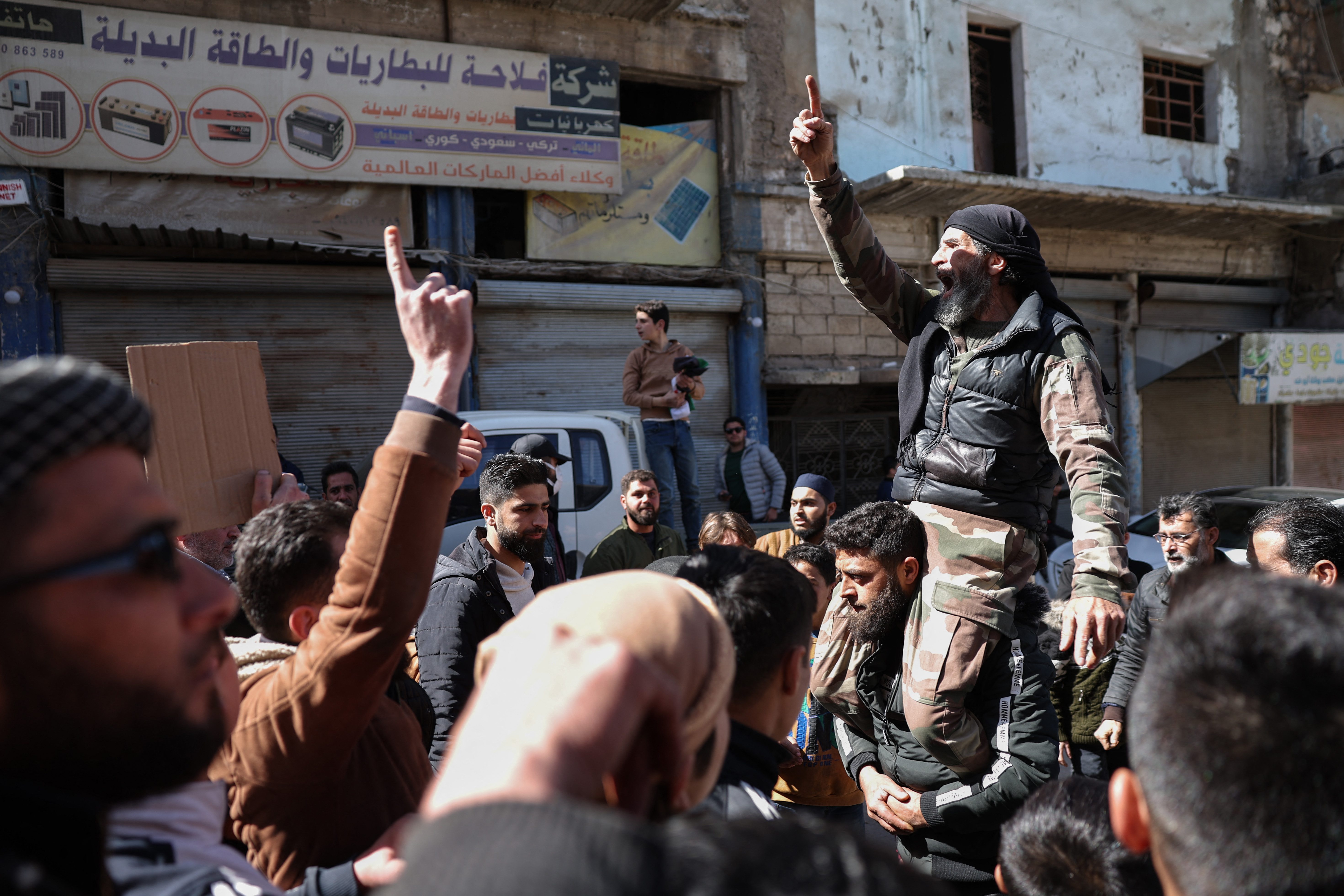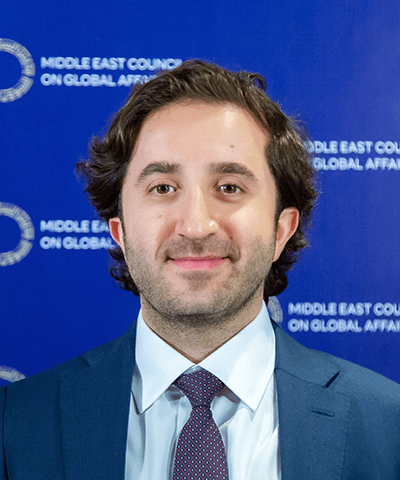The military escalation since the start of the war in Gaza on October 7 highlights the vulnerability of the Middle East and North Africa (MENA) to a relapse of conflict, potentially in a conflagration that could engulf the region at large. Over years of devastating intra-state conflicts and proxy wars in Iraq, Syria, Libya, and Yemen, there have been wide-ranging efforts to forge a consensus-driven regional order and collective security architecture. However, regional peace-building attempts have been largely ad hoc and reactive, as with China’s mediation of Saudi-Iran tensions. Or they have been confined to a single conflict, as with Iraq’s mediation of the Saudi-Iran rivalry in Yemen.
In Syria, Iraq, and Libya, there have been repeated but failed attempts to forge peace and stability, including countless cease-fires and mediation tracks. As U.S.-Iran rivalry escalates against the backdrop of the war in Gaza, there is a danger that the post-Arab Spring proxy wars will be forgotten, with serious implications for regional peace and stability. Civil wars in Syria, Libya, and Yemen have already resulted in humanitarian calamities, but these countries will likely see more devastating conflict and atrocities for years, if not decades to come, as long as belligerents have the stomach and resources to continue the fight. What is needed is a grand settlement involving local, regional, and international actors to bring about lasting peace and stability.
Challenges to the establishment of peace.
The wounds left by two decades of violence will take many years to heal. Syria, particularly, faces the arduous, generational challenge of reconciling grievances at the local and national levels, among different communities with real grievances, not to mention the presence of tens of thousands of armed rebels determined to continue their insurgency against the Assad regime. Similarly, in Yemen and Libya, the societies’ collective consciousness has been shaped by almost a decade of war and brutality, and will in turn continue to shape their futures for years to come.
Are civil wars making a comeback?
Indeed, civil wars tend to relapse: 57% of all countries that suffered from one civil war between 1945-2009 experienced at least one conflict thereafter. Iraq’s transition to post-conflict status after the war on the Islamic State in Iraq and Syria (ISIS) remains tentative at best. Lebanon’s peace, after decades of civil war, is precarious. The MENA region accounts for over a fifth of all conflicts since 2000, according to the Uppsala Conflict Data Project (UCDP), and nearly 40% of high-intensity conflicts, which claim more than 1,000 lives in a single year. The impact is catastrophic: at least 8,200 battlefield deaths in Libya, 20,000 in Yemen, and 313,000 in Syria between 2011 and May 2018.
The geopolitical and geo-economic backdrops have complicated the picture. Regional rivalries have created the space in which armed groups thrive. Iran and Saudi Arabia have used intra-state conflicts as staging grounds for advancing their geopolitical interests, particularly in Syria and Yemen. They are not alone. Other rivalries and proxy conflicts have left deep marks on the region. In Iraq, western governments have worked with state security forces, Sunni Arab tribes, Shiite fighters within the Popular Mobilization Force (PMF), and the Kurdish Peshmerga. In Syria, the West has backed rebel groups fighting the Assad regime, as well as the Kurdish YPG, which refuses to fight the regime. Each of these actors has at some stage fought one of the others. Similarly, in Libya, European countries backed rival militias; Italy and most other European Union members backed the Tripoli-based Government of National Accord (GNA), while France supported General Khalifa Haftar’s Libyan National Army (LNA). The Gulf Arab States also backed opposing forces, alongside Turkey and Egypt.
To make matters worse, states that had previously furthered their national security interests through conventional forces are now shifting towards using proxies. Türkiye, in particular, has established and mobilized proxy groups in conflicts in Syria and Libya. Yet armed groups do not necessarily depend solely on outside powers. Some have tremendous resources at their disposal both domestically and internationally, with revenues from illicit cross-border trade, natural resources, and extortion of local communities. The U.N. Security Council estimates that Yemen’s Houthis diverted at least $1.8 billion designated to the government in 2019 to fund their operations and control legal and illegal sources of revenue, including a khums (one-fifth) religious tax on many economic activities. Iraq’s PMF has established a trading body to capitalize on state contracts; armed groups in Iraq generally generate $10 billion annually in customs revenues.
International community’s role in establishing peace in the Middle East
The international community’s options for containing the bloodshed are limited. Almost every regional and international power involved in Syria has accepted to some degree that the regime is here to stay, even if they still hope for a scenario where Bashar al-Assad leaves power or is toppled at some point in the future. Moreover, they want to uphold the territorial integrity of the Syrian state and avoid its collapse or de facto partition, as such a scenario would have far-reaching implications for the stability of other countries in the region. Most actors also recognize the imperative of addressing the humanitarian crises in Syria.
There are, therefore, some grounds for building on shared interests. For example, there will likely be further opportunities for the U.S. to broker an arrangement in Syria that both assuages Turkish national security concerns and keeps the YPG as a buffer against a resurgence of ISIS. Indeed, Syria has entered a post-ISIS political order where each of the belligerents is looking to claim a large stake in the country. However, if the balance of power in Syria continues to shift in favor of the Assad regime, Iran and Russia, to the point where this becomes unacceptable to others in the region, this would increase the likelihood of further civil wars in Syria and the region.
Alternatively, a balance of power could put in place agreed rules and limits. Washington and its European allies may be unable to impose rules, but they could cultivate them in the coming years. As Washington’s experience in Iraq shows, withdrawals leave a void that will almost certainly be filled by America’s enemies and, in turn, shift the balance of power so far in one direction that the room for a sustainable settlement diminishes, one that would be essential to preventing conflict relapse. In Iraq, it was Iran that moved to dominate and capitalize on the space left by the withdrawal of US troops in 2011. This has marginalized Sunni Arabs and Kurds and intensified the ethnic and sectarian tensions that arguably enabled the ISIS takeover in 2014.
Building Regional Cooperation: Key to Lasting Peace in the Middle East
Presence equals power. It is actors on the ground who shape states and governing structures in post-conflict environments. If the U.S. maintains its presence east of the Euphrates and repels Iranian and Russian attempts to force it out, it can help maintain a degree of stability and ensure at least some parts of Syria are shielded from new rounds of conflict. Despite its many mistakes in Iraq, the U.S. arguably created a buffer against competing sectarian groups, who would have otherwise had carte blanche and likely claimed far more lives. At the least, this buffer prevented ethnic and sectarian conflict from engulfing safe havens like the Kurdistan Region.
The single most important lesson from several of the conflict zones that have gripped the region over the past decade is that no one single actor can address crises and conflicts alone. Western governments must heed the lessons of the past by working with the wider region, including Turkey and the Gulf Arab states. A reworked version of the NATO-led International Security Assistance Force (ISAF) coalition in Afghanistan, one that includes Arab forces and a substantial Turkish contribution, could go a long way toward stabilizing Syria, Libya, and Yemen. Despite its deteriorated relations with the West, Turkey is still the most viable candidate for regional leadership, one whose contribution will help bring legitimacy to any containment effort in Syria. Turkey would welcome a greater, more proactive Western and Gulf role in this respect, although the full parameters of this role will most likely not emerge for years, and certainly not while the war in Gaza continues.
Syria, Iraq, Libya, and Yemen will be fragile states with weak national institutions for years to come. Governance in large parts of these countries will fall to local, grassroots actors. If they are to bring urgent humanitarian assistance to beleaguered populations, establish democratic norms and accountability and strengthen their fragile and divided communities, these actors will need reliable and ongoing international support.
The opinions expressed in this article are those of the author and do not necessarily reflect the views of the Middle East Council on Global Affairs.

